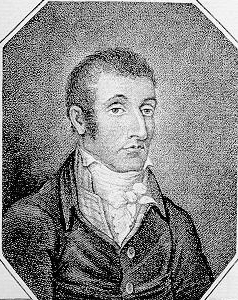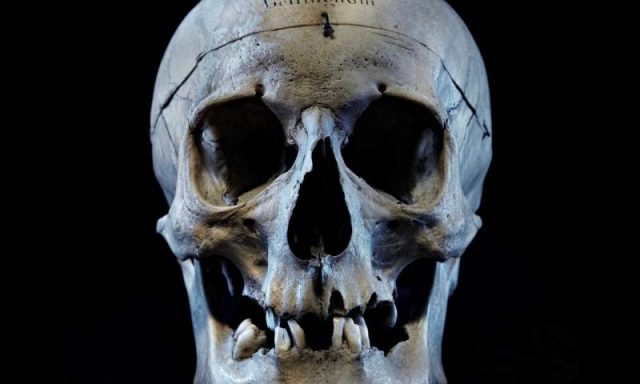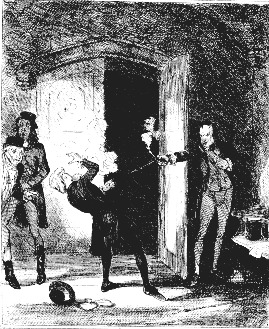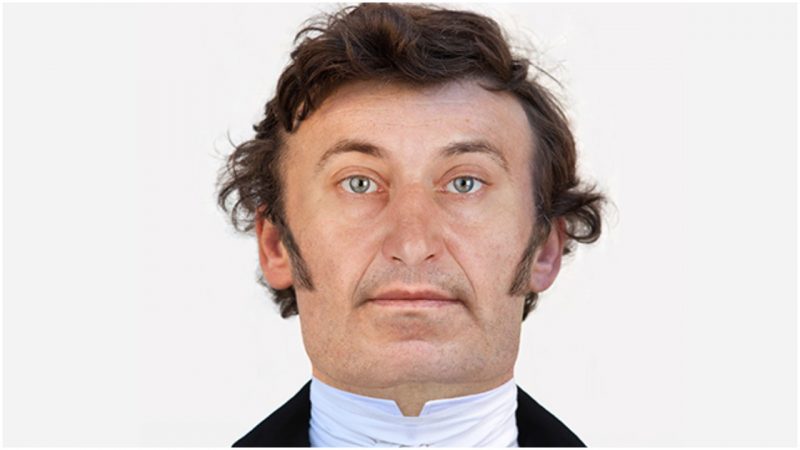The face of the only person to have ever assassinated a British Prime Minister, described as an “angry businessman,” has been revealed for the very first time through a forensic reconstruction.
A new dimensional portrait of John Bellingham, the only person to have successfully assassinated a Prime Minister, was created by museum technicians at Queen Mary University of London, using facial reconstruction based on his skull.
The brain of the assassin was the most famous item in the collection at Queen Mary’s Pathology Museum.

Bellingham assassinated Prime Minister Spencer Perceval in 1812. Although there is little information about this skull, it is known that the museum acquired the specimen because the punishment for murder at that time was to be “hanged and anatomized.”
Forensic imaging expert Hew Morrison, whose previous work included reconstructing the face of Ava from the Bronze Age, carried out a digital reconstruction based on the skull, to show what John Bellingham would have looked like to his contemporaries at the time of his death.
Bellingham shot Spencer Perceval in the lobby of the Palace of Westminster in May 1812.
He was convicted and hanged for it.

Carla Valentine, Museum Technician at Queen Mary’s Pathology Museum, said to Archaeology & Art: “This is a novel way to engage the public with a previously one-dimensional ‘specimen.’ In this project, we specifically opted to reconstruct a well-known figure in order to reinstate his personality.”
She explained: “A skull which has been denuded of its facial features – and therefore its identity – has less of an impact on a museum visitor than being able to see the person’s face. The impersonal presentation of a skull can also be seen as creating a ‘spectacle’ out of the person, which is an issue when we work hard to display human remains to the public in an appropriate manner.”
John Bellingham’s living relatives were tracked down and asked for permission. They agreed to the project.

Knowing that Bellingham was a male in his forties and British, a modern database of tissue depth markers that apply to European male individuals of the same age group were used to gauge the thickness of the tissues that overlay the skull.
The eye sockets on the preserved skull were quite large, which led to the high position of the eyebrows on the reconstruction.
The height of the enamel of the front teeth on the skull also determines the thickness of the lips. This was used to determine the height of the bottom lips from the teeth, but due to the top teeth not being present, an approximation had to be made for the top lips.
To create the facial features, a large database of high-resolution photographs of human faces was used, according to Archaeology & Art. “Each facial feature was adjusted to fit with the underlying anatomy of the skull and facial muscles. Computer software was used to combine and blend everything together to create the completed face.”
Hair color, eye color, and skin tone cannot be determined from a skull. A suitable hairstyle was added to the reconstruction along with sideburns, which were present in illustrations of Bellingham.
After he shot the Prime Minister, Bellingham sat down on a bench and waited to be arrested.

He was hanged for the murder one week later.
“Bellingham’s assassination of Perceval came after years of trying to get the British government to redress the financial losses he’d suffered in Russia,” according to the Daily Mail.
Bellingham had been jailed in Russia in 1803 when he tried to leave the country without repaying some debts. He accrued the debts after a business venture broke down. But he always claimed that the authorities were mistaken.
Read another story from us: The Incredibly Realistic Face of Queen Elizabeth I
Evidence of his insanity was presented at trial but discounted.
Bellingham left behind a wife and children.
Nancy Bilyeau, a former staff editor at Entertainment Weekly, Rolling Stone, and InStyle, has written a trilogy of Tudor-era thrillers for Touchstone Books. Her next book, The Blue, is a spy story set in the 18th century. For more information, go to www.nancybilyeau.com
